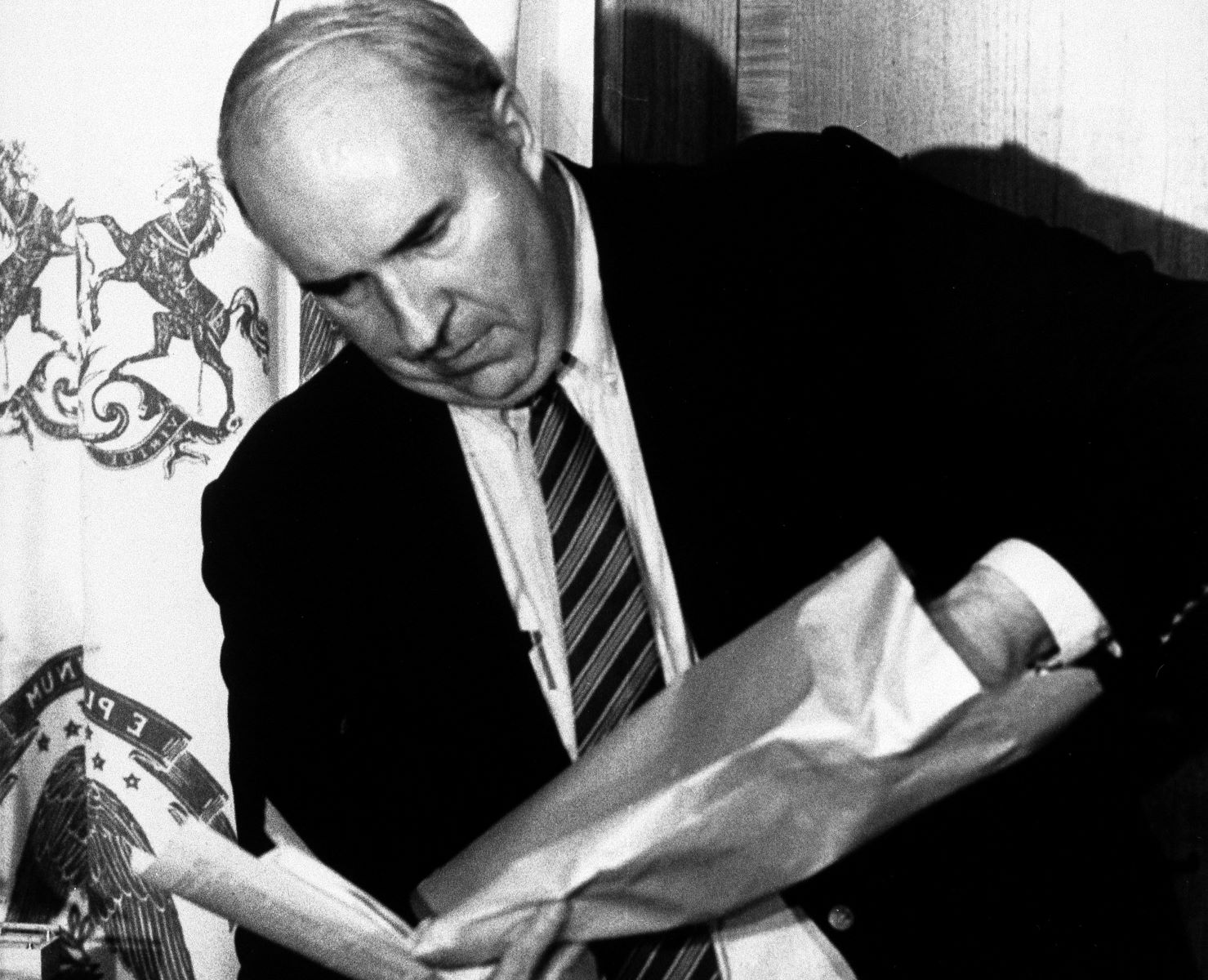
Who was R. Budd Dwyer? R. Budd Dwyer was a Pennsylvania politician who served as the state's Treasurer. His life took a tragic turn in 1987 when he was convicted of bribery charges. Facing a lengthy prison sentence, Dwyer called a press conference on January 22, 1987. In a shocking and unforgettable moment, he took his own life in front of the cameras. This event left a lasting impact on those who witnessed it and sparked debates about media ethics, mental health, and the pressures faced by public officials. Dwyer's story is a complex mix of political intrigue, personal struggle, and public spectacle.
Early Life and Education
R. Budd Dwyer, a name that still echoes in Pennsylvania's political history, had a life filled with notable events even before his infamous end. Let's delve into some facts about his early years and education.
- Robert Budd Dwyer was born on November 21, 1939, in St. Charles, Missouri.
- He attended Allegheny College in Meadville, Pennsylvania, where he earned a bachelor's degree in political science and accounting.
- Dwyer was a member of the Phi Kappa Psi fraternity during his college years.
- He later pursued a master's degree in education at Bucknell University.
Political Career
Dwyer's political journey began in the 1960s and saw him rise through the ranks of Pennsylvania's political landscape. Here are some key moments from his career.
- In 1964, Dwyer was elected to the Pennsylvania House of Representatives, representing the 6th district.
- He served in the Pennsylvania House of Representatives until 1970.
- Dwyer was then elected to the Pennsylvania State Senate, where he served from 1971 to 1981.
- In 1980, he was elected as the Treasurer of Pennsylvania, a position he held until his death in 1987.
- As Treasurer, Dwyer was responsible for overseeing the state's financial operations and investments.
The Bribery Scandal
Dwyer's career took a dramatic turn when he became embroiled in a bribery scandal that would ultimately lead to his tragic end. Here are the key facts about the scandal.
- In the early 1980s, Pennsylvania discovered that state employees had overpaid federal taxes due to errors in the state’s withholding system.
- The state sought to hire a firm to determine the amount of refunds owed to employees.
- Dwyer was accused of accepting a bribe from a California-based firm, Computer Technology Associates (CTA), to award them the contract.
- In 1986, Dwyer was indicted on charges of conspiracy, mail fraud, perjury, and interstate transportation in aid of racketeering.
- Despite maintaining his innocence, Dwyer was found guilty on 11 counts in December 1986.
The Press Conference
The events of January 22, 1987, remain one of the most shocking moments in American political history. Here are the facts about that fateful day.
- Dwyer called a press conference on January 22, 1987, to address the charges against him.
- The conference was held in Harrisburg, Pennsylvania, at the state capital.
- During the conference, Dwyer read a prepared statement defending his innocence and criticizing the judicial system.
- He then handed out three envelopes to his staff, containing letters to his family and a note to the incoming governor.
- Dwyer produced a .357 Magnum revolver from a manila envelope.
- Despite pleas from those present, he placed the gun in his mouth and pulled the trigger, dying instantly.
Aftermath and Legacy
Dwyer's death had a profound impact on Pennsylvania and the nation. Here are some facts about the aftermath and his legacy.
- Dwyer's suicide was broadcast on live television, shocking viewers across the state.
- His death led to debates about the ethics of broadcasting such graphic content.
- Dwyer's family received his state pension benefits, which they would have lost if he had been imprisoned.
- The scandal and Dwyer's death inspired the 2003 documentary "Honest Man: The Life of R. Budd Dwyer."
- His case has been cited in discussions about political corruption and the pressures faced by public officials.
Personal Life
Beyond his political career and tragic end, Dwyer had a personal life filled with family and interests. Here are some facts about his personal life.
- Dwyer married Joanne Dwyer, and they had two children, Rob and Dyan.
- He was known to be a devoted family man who enjoyed spending time with his wife and children.
- Dwyer was an active member of his local church and community organizations.
- He had a passion for education and often spoke about the importance of learning and civic engagement.
- Despite his political troubles, friends and family remembered him as a kind and generous person.
Public Perception and Media
Dwyer's life and death have been the subject of much media coverage and public discussion. Here are some facts about how he has been perceived over the years.
- The media coverage of Dwyer's suicide raised questions about journalistic responsibility and the impact of graphic content on viewers.
- His case has been referenced in various books, articles, and documentaries about political corruption and mental health.
- Some view Dwyer as a tragic figure who was a victim of a flawed judicial system.
- Others see him as a cautionary tale about the dangers of political corruption and the pressures of public office.
- Despite the controversy, Dwyer's story continues to be a topic of interest and debate among historians, journalists, and the public.
Reflecting on R Budd Dwyer's Legacy
R Budd Dwyer's story is a stark reminder of the complexities within politics and human nature. His career, marked by dedication and controversy, ended tragically, leaving a lasting impact on public perception of political integrity. Dwyer's life and death underscore the importance of transparency and accountability in public office. His case also highlights the intense pressures faced by politicians, which can lead to devastating outcomes. By understanding Dwyer's journey, we gain insight into the challenges and ethical dilemmas that public servants encounter. His legacy serves as a cautionary tale, urging future leaders to prioritize honesty and ethical conduct. While his story is somber, it offers valuable lessons about the human side of politics and the critical need for systemic reforms to support those in public service.
Was this page helpful?
Our commitment to delivering trustworthy and engaging content is at the heart of what we do. Each fact on our site is contributed by real users like you, bringing a wealth of diverse insights and information. To ensure the highest standards of accuracy and reliability, our dedicated editors meticulously review each submission. This process guarantees that the facts we share are not only fascinating but also credible. Trust in our commitment to quality and authenticity as you explore and learn with us.


